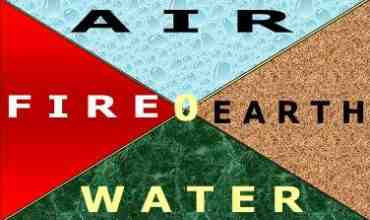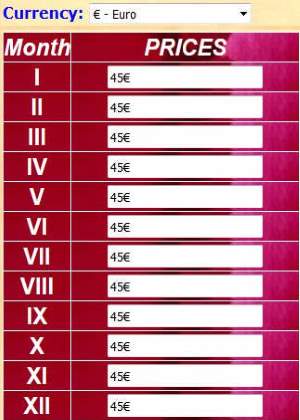Concept of the Mentally - Emotively Emotional Intelligence
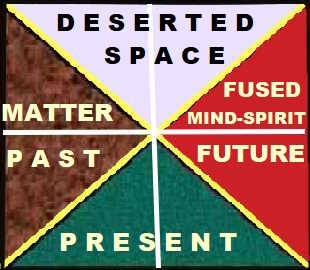
(Recti)linear Creative Framework for the Orientation in Time AND Space
VERSUS
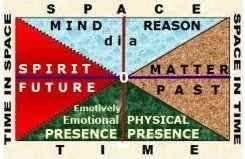
Dialectical Creative Framework for Orientation in the Eternity of Times DIA Infinity of Spaces
DIA
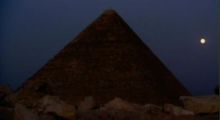
The Cheops Pyramid in Egypt
From the dialectical content explained in the previous part of this creative article, related to the Dialectical Understanding of the Spiritual DIA Mindual Intelligence, it is easy to understand that the presented concept of the simple(st) mind is based on the abilities of the mental intellect, whose main feature is the inevitable verification of created knowledge with the help of the five famous "scientific" senses. On the other hand, the written creative works of this creator of knowledge are based on the application of EMOTIVELY emotional - mental intellect, which is based on the seven human senses [5 + the sense of intuition and the sense of feeling (its inner self)]. The role of the term "EMOTIVELY (emotional)" is essential within this type of intellect, because it is associated with the highest positive (spiritual) emotion, or spiritual feeling, which in fact allows DIA urges, drives, inspires and motivates a creator of knowledge during the creative journeys undertaken for the purpose of creating knowledge, to cover and overcome vast distances of dialectical worlds, including the distance that separates her, him from the Greatest Creator of us (all): God, if necessary.
In the earthly sense, this emotively emotional feeling of its inner self (itself), or its human root (Mark 4,17, Matthew 13,21), if you will, every HUMAN BEING can feel (sense) it. For example, reading its own (EARTHLY or earthenly) beginning DIA relevant events in the Paradise Garden EDEN, noted down in the Old Testament (1.Moses-2), there is a huge and inexpressible inner desire and longing, started by itself, understood in the sense of starting an endless series of appropriate emotions, to return there again, or somewhere else that reminds her, him of that. But this EMOTIVELY SPIRITUAL feeling is actually one dimension behind it
- [and beyond, depending on what is wanted to achieve, understood in terms of the appropriate dialectical distance to be bridged],
that is, it is more than this overwhelming desire for DIA appropriate emotions: One unbearable and irresistible longing. In fact, an inexpressible longing to traverse these vast distances of the worlds of dialectics, understood in terms of the eternity of times DIA infinity of spaces, which actually dialectically separates her, him from (achieving) this goal.
- Individuals as the human(e) beings have an inborn need to communicate with other human and humane beings, to
share together excitement during the creative acting, based on the suitable value system, that they can feel like
an integral part of the working and creative environment (feeling of the belonging). They are also always ready to learn different
ways of working, of living, and especially to create something usefull for humanity. These kind of the individuals are the
most creative when they feel themselves motivated and inspired by personal fulfilment of their value drivers, understood in terms of
satisfaction of the related inner needs. In other words, all these human(e) efforts were undertaken in order to be
refreshed and re-enlightened their Inner Being DIA Innermost Light by applying their (inborn) creativity: A Gift
of God.
For this reason, a creator of knowledge is driven by its personal desire to confront big creative challenges of time DIA space without flinching, based on the eternal principles of truth, trust and love of His, in particular those, which no one else has been able to conquer. In other words, they are engaged in these creative processes, at first place, for the sake of challenge, the related excitement and enjoyment in the fulfilling their life missions. The creative acting itself DIA the re-enlightenment and renewal of the Inner DIA Inmost Being, through the self-awareness of this uppermost experiential feeling, that is, of this noblest and uttermost way of manifesting and feeling oneself, is the greatest imaginable incentive, joy and pleasure of all imaginable ones. In short, the created (deepened) knowledge enables them to get a feeling of the touching eternity DIA infinity. Or understood this in dialectical sense, in this way to greet the Greatest Creator of them all.
Source: "Netmode – the Strategy for 21st Century – Dialectic Interactive Approach, Jovanović, 1999"
3.5 General Guidelines for the Creative Acting: Relationship Netmodule
How important it is to cultivate GOOD within oneself is shown by the fact that only good individuals with (deep) human roots (human beings), whose depth actually determines the degree of their goodness (quality) or their emotivelly emotional potential, capacity, and permeability of ideas and thoughts (bandwidth) within time in space (now and there) and their transformation into relevant thoughts, information, and knowledge within space in time (here and now), as well as their ability to manage and cope with previously described scenarios in time DIA appropriate situations in space during the process of creating new knowledge or reviving hidden and lost knowledge through retrospective recollection and remindance.
For this reason, human beings take care of this kind of universal currency and treasure (light) by avoiding following the usual up-and-down ⇅ path of natural evolution, as well as their well-known crawling and wandering back and forth ⇄, that is, they avoid the interruption and obscuration of their HUMAN ROOT, as a result of their sojourn in dialectical worlds and realms of oblivion. Or to put it another way, in order to preserve this universal currency, which is also valid in the "afterlife" (after biological death), or in Plato's words to avoid selling the soul, these great individuals were forced by this ubiquitous inhuman race to renounce earthly material blessings and pleasures, to a greater or lesser extent.
As one example of the importance of nurturing (of feeling) its human root (Mark 4:17, Matthew 13:21), take Plato's dialectos Timaeus. Although it has been read by many since these antique days, including the greatest minds and thinkers of mankind, this enigmatic text has remained incomprehensible and mysterious. In short, until the appearance of this creator of knowledge, the hidden knowledge encrypted in this dialectos-parable could not be deciphered and unriddled, that is, the creative efforts of their decipherment were without much success. In addition to this, the dialectical understanding of time and space, as well as the creative methodological framework of the dialectical interactive approach are also revealed or revived through retrospective recollection and remindance, then you get an even clearer picture and the idea of everything previously presented in this creative article. For this reason, Plato's approach and way of understanding philosophy gained in greatness and significance because it is far more appropriate for making big creative breakthroughs and revolutionary discoveries. In my opinion, Plato was the last and greatest follower of this original meaning of philosophy, that is, love (philo) and nurturing wisdom (sophos), accordingly, searching for the meaning of life in the deeper, further and broader sense of this notion.
If it is excluded critics of Plato's work with the abilities of vulgarized simple mind, his student Aristotle also criticized Plato's conception of retrospective recollection. Using the well-known bipolar dia binary way of thinking or denying, Aristotle believed that knowledge is only acquired over time through accumulated experience. According to him, if someone has not lived before, there is nothing to remember, so for this reason, what is the meaning of this type of memory and reminiscence, which was represented by Plato. In short, according to Aristotle, knowledge cannot be discovered or revived but can only be perceived and observed (with the five basic senses). All of the above sounds very familiar in this modern age of nurturing the values of the natiocratic way of manifesting various forms of scientific materialism and materialisticism.
Seen from the perspective of this dialectical interactive approach, instead of simply supplementing his teacher's teaching, Aristotle chose the option of opposing, denying, and replacing Plato's teaching with his own theory. This approach of his came back to him like a boomerang. Namely, although Aristotle's teaching is not so much of a material nature, and especially not of a materialistic character, as presented by his followers, that is, they found inspiration for it in his works, after passing, chewing, and digesting his philosophical theories through the prism of their five scientific senses, such an impression is gained. Reading this previously stated, as well as similar destinies of many great thinkers, this creator of knowledge fiercely criticized this primitive and inhuman way of thinking for easier grouping and herding of people [black-white, yes-no, true-false, with us-against us ....] for purpose of easier realization of various natiocratic goals, which have so far caused a lot of damage to humanity.
- Examples of this Aristotle's experiential approach applied in terms of observing the events around us are the
Organic Theory of Organizing Society, Social Theory and the Application of Darwinism, and various Mechanistic theories;
to mention just a few of the most famous theories that have been the inspiration for various social laboratory
experiments, using humans and people as guinea pigs. The organic theory of the state, ie the organization of society, was
mentioned because it focuses on the natiocratic spirit of collectivism and its power, taking the living organism as
inspiration and ideal, claiming that the state collective is stronger than individuals. Without denying this kind
of manifestation of collective primitivism through the use and abuse of force, as well as the fact that the synergy
of the whole is stronger than its constituent parts, the much more important fact that the greatest creative
achievements were the result of great individuals, not all individuals, groups and collectives, and thus of the state too.
Having all this in mind, without creating new knowledge, as well as renewing existing knowledge in the broadest sense of this term, including the acquired wisdom of bygone time and space, understood in a dialectical sense, every emerging social organism or collective is doomed to disappear and descend from this great creative all-saying stages, which has been proven many times in the past. Unfortunately, corrupt and evil individuals in order to expand the living space for further growth of this way of understanding the role and meaning of the social organism, have inflicted a lot of damage and evil on humanity by abusing this spirit of collectivism, as well as created knowledge.SECRETS OF THE FOUR ELEMENTS: The Unity and Struggle of Dialectical Tensions in Time DIA Space
DIA
The Four Primary DIA Proto Paradigmatic Presumptions of the Dialectic Interactive Approach
An additional example of this Aristotle's experiential approach applied in terms of observing the events around us is the interpretation of the role of four ancient elements (water, air, fire, earth) from the perspective of various observed manifestations of the force of nature. In other words, those unfamiliar with this hidden knowledge tried to unravel its secrets by observing the action of these four elements in the natural environment reflected through the prism of accumulated experience in the past; writing pages and pages of thoroughly well-written nonsense, but understandable and close to ordinary people. Without delving into a deeper discussion of these written volumes of books and developed theories, read and compare it with the interpretation of the role of these four ancient elements (water, air, fire, earth) during the creation and revival of knowledge. Read Dialectic Interactive Approach: Its Methodological Creative Framework. I hope you will immediately notice that this interpretation of the four ancient elements has very little in common with what you have already read about the secrets of these four elements.
Read the Next Part: Barriers to Development of the Spiritually - Mindual Intellect





